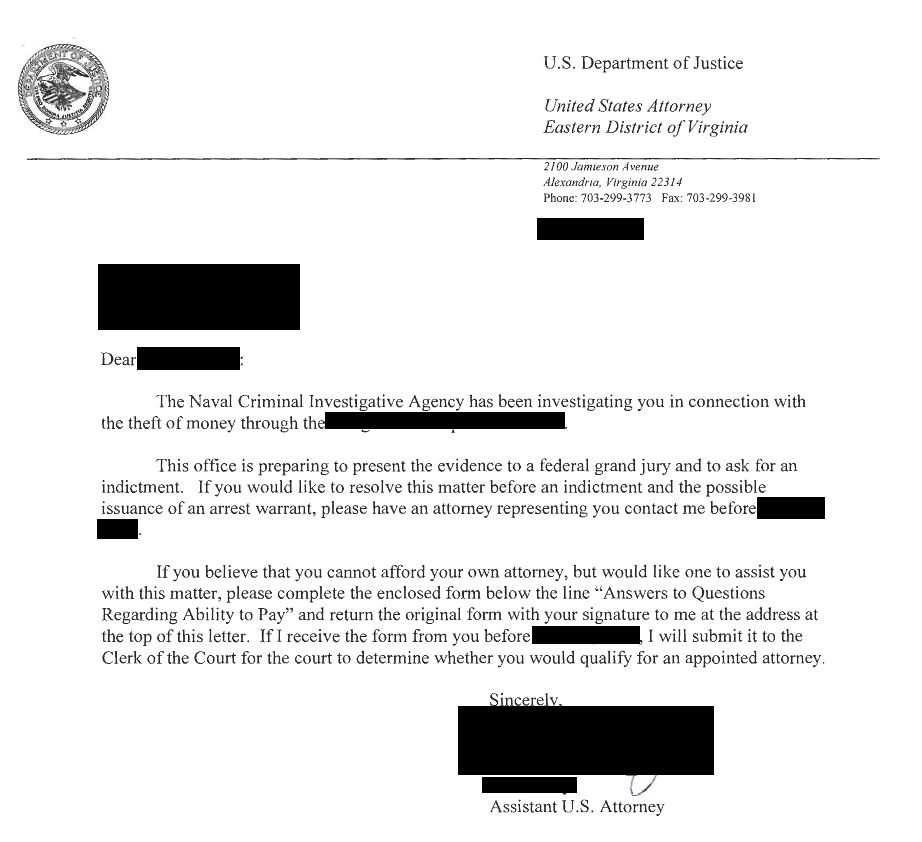A target letter is a letter from the federal government telling you that you are a target for criminal prosecution. It is frequently used in white collar crimes and is typically the first sign that you are under investigation. A target can be defined as someone where the government believes there is substantial evidence. The target letter notifies you of:
- the crime or crimes that you are suspected of committing;
- your right to assert the Fifth Amendment; and
- information for obtaining court-appointed lawyer.
Importantly, the target letter will caution you against destroying any evidence, which could result in additional obstruction of justice charges being brought. The letter may even ask that you contact the prosecutor on the case to discuss it further. Do not do this without having your own lawyer first.
Will I be indicted?
No. Although the likelihood of an indictment is high, it is not inevitable. Prosecutors are not always able to gather sufficient evidence to indict their targets. In some cases, an experienced defense attorney may be able to persuade the prosecutor to close an investigation, or reclassify the target as a witness. Whether this is possible depends upon the specific facts of your case.
What to do if you receive a target letter?
Retain a federal criminal defense lawyer immediately. In some cases, an attorney might be able to persuade the prosecutions to drop the investigation against you. Even if a criminal indictment is inevitable, your attorney may be able to obtain early discovery, evaluate the evidence, and perhaps reach out to the prosecution to negotiate a favorable pre-indictment plea agreement.
Should I talk to the prosecutor about the letter?
No, not without consulting and retaining a lawyer first. It may be tempting to contact the investigating agents to obtain information or explain your involvement or lack of involvement, but this is a mistake. Whatever you tell them can and will be used against you. Never talk to the government without your attorney present.
Should I talk to others involved in the investigation?
No. There reason why is that often times people are looking to better their own position by providing information about others involved, which means they can use what you talk to them about against you. Even if that is not the case the other person may claim you threatened them or encouraged them not to cooperate with the government and you could be back facing obstruction charges in addition to the original charge from the investigation.
Charleston Criminal Defense Attorney
If you have received a target letter call today at (843) 530-7813 to speak with an experienced Charleston criminal defense attorney about your case, the consultation is free and all discussions are confidential.

